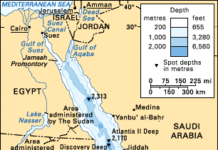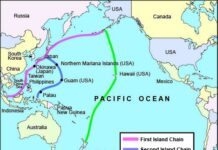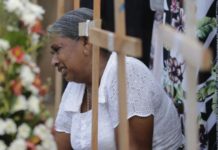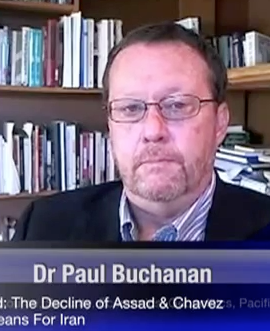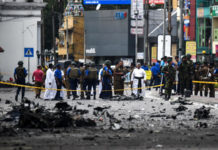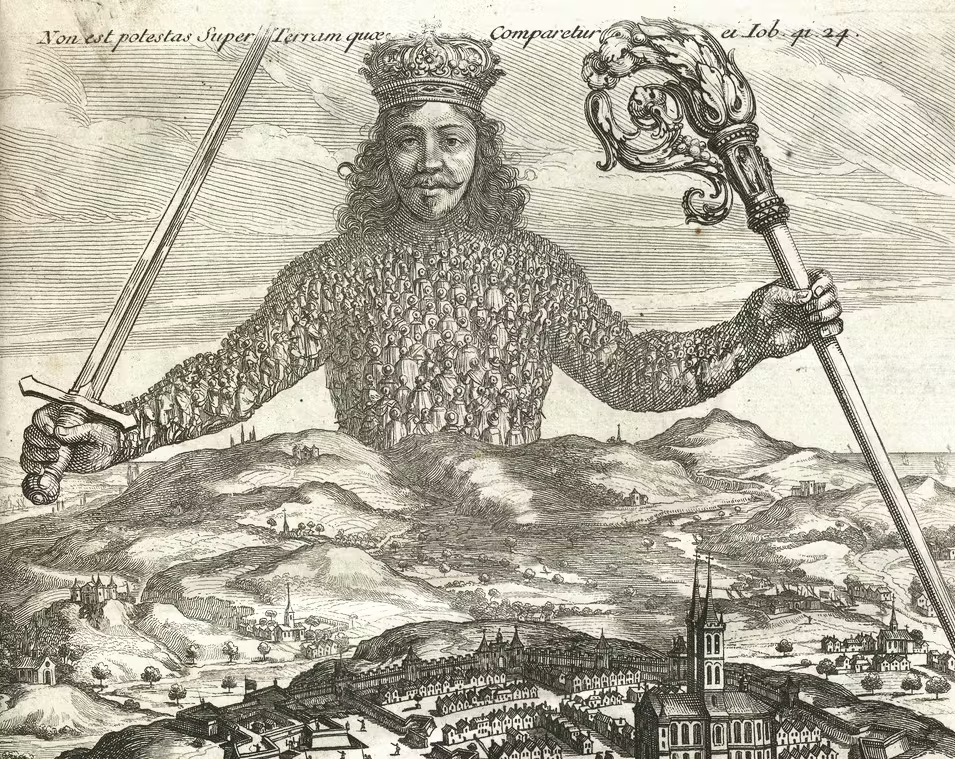
Continuity, Crisis and the Process of Political Consolidation in Tonga.
Weekly Analysis – By Paul G. Buchanan.

This week the Tongan Crown Prince Tupouto’a Ulukalala is marrying his cousin. Although there is concern about potential inbreeding, the wedding demonstrates commitment to the royal lineage on the part of recently installed King Tupou VI. The nuptials reaffirm the role of nobility in Tongan society and a commitment to perpetuating the genetic core of it. The intent is to demonstrate continuity, certainty and stability within the institutional backbone of Tongan life. As a sign of royal connection to everyday Tongans (commoners), the celebrations have been muted (in part because it follows on the official mourning period for the late King Tupou V) and the royal family are paying for them rather than having the government fund the exercise as per past tradition.The Tongan royalty, however, are symbols of tradition and the historical past.
As 36th Parallel Assessments has argued in previous analyses, the political liberalization process begun by King Tupou V is, if not irreversible, already seen in a number of areas, including the professionalization of the military and the holding of the first open and transparent elections for parliament in November 2010. These elections, known as “foundational elections” in the comparative politics nomenclature, were the first step in the effective extension of the franchise to commoners.

The royal wedding has delayed an equally if not more important event in Tongan politics that may well be the second step in the democratization process: the vote of no confidence in the first freely elected government in Tongan history. The vote, which is anticipated to be held in two weeks, was precipitated by the June 27 resignations of three cabinet ministers (Police, Health and Labour) on the back of allegations of financial impropriety and incompetence against the Prime Minister, Lord Tu’Ivakano and other ministers and high ranking government staff. It occurs at the halfway point of the parliamentary term, against a backdrop of prolonged economic stagnation most evident in a thirty percent drop in foreign remittances (a major source of hard currency revenue and 40 percent of GDP), a decline in exports to near zero and the growth in sovereign debt to US$174 million in the last four years, something that has increased unemployment and an exodus of labor to foreign shores. Business development and investment are at a standstill, with GDP growth forecast for 1.5 percent for FY 2011/2012 (most of this due to growth in tourism, donor aid and concessional loans).
Politically there have been a number of conflicts between the parliamentary opposition and the government over issues such as the relationship of the executive and the judiciary. Prime Minister Tu’ lvakano has been accused of trying to “Fijianize” the Tongan courts by replacing independent jurists with government appointed officers while making the courts responsible to the government in the first instance. Given the unhappy state of relations between Fiji and Tonga, such accusations of judicial interference find resonance in Tongan public opinion.
Underlying this is a pervasive sense, shared by many commoners, of endemic corruption in high places. This was reaffirmed by investigations into the 2009 MV Princess Ashika sinking, where the inter-island ferry was lost along with 74 passengers while on its first domestic carriage after being pronounced seaworthy by Tongan authorities in spite of substantial evidence to the contrary. Evidence that Tongan officials ignored serious warnings about the state of the vessel amid rapid and non-transparent financial transactions between the seller of the ferry and Tongan government-controlled buyer reinforced public perceptions that the public interest was not foremost in the minds of many public officials.
Regardless of the proximate causes of the no-confidence motion, the underlying reason for the parliamentary crisis stems from the long-standing tensions between nobles and commoners in Tongan society, something that is reflected in the composition and dynamics of the 38-member Tongan parliament. Serving three-year terms, seventeen commoner members are elected in multi-seat constituencies (ten seats for Tongatapu, three for Vava’u, two for Ha’apai and one each for Niuas and ’Eua), nine are elected by 33 hereditary nobles and ten are appointed by the Privy Council (which is the executive branch and includes non-elected members). As with (Western) Samoa, nobles hold a disproportionate number of parliamentary seats relative to their numbers (albeit at much lower numbers than in Samoa), which along with non-elected members and support from independents has seen the first democratic government dominated by noble interests. The erosion of trust and confidence in Lord Tu’Ivakano and the Parliamentary Speaker Havea Hikule’o (Lord Lasike, who was recently convicted of possession of ammunition, which could see him lose his seat in the assembly) has accentuated the divide between the few and the many, something that is now being exploited by the commoner parliamentary opposition bloc under Westminster-style rules.

Much like Samoa, the role of expatriates in Tongan political life cannot be discounted. More than half of the Tongans alive today reside overseas. Most are commoners and many are second and third generation immigrants, whose ties to the motherland, to include knowledge of village life and loyalty to nobility, are more tenuous than that of their progenitors. The majority of the expatriate community lives in Australia, the US, New Zealand, Canada and Japan, and virtually every resident of the islands has relatives abroad. This is notable because all of the preferred destination countries are mature democracies, and for many of those raised and educated in them, notions of representation, government and civic duty differ markedly from Tongan tradition. This has an impact not only on remittances (since younger, foreign-born expatriates tend to remit less back to the homeland) but also on political attitudes as they are imparted and shared by expatriates with the resident population. For many Tongans, genuine majority rule, as manifest in the presence of commoners at the head of government, is now a clear preference even though they continue to respect royal traditions.
The no-confidence vote is being pushed by ten commoner members of parliament led by former broadcaster, activist and now opposition leader Akilisi Pohiva of the Friendly Island Democratic Party (Democratic Party, which has 12 members in parliament), and has the support of the three former cabinet ministers (two of whom are from his party) and some independents who will be the deciding factor as to whether the motion passes (the motion has been delayed 14 days from July 2 to allow the government to consider its response).
Media attention has focused on arguments about whether non-elected parliamentarians are allowed to vote on the motion, on whether the Speaker can vote twice (as a noble and as Speaker in the event of a deadlock), on personality conflicts and shifting alliances between parliamentarians, on whether there should be public consultations about the vote and whether holding the vote will prevent a national budget from being passed (since the FY 2012/13 budget is up for parliamentary ratification). Current projections show a very even split between those in favor and those against the motion, but there are undeclared members yet to decide which way they will vote. Invoking memories of the 2006 Nukualofa riots, government officials such as Justice Minister Clive Edwards have warned of possible violence should the motion be passed (Mr. Edwards claims that he will move to New Zealand if that happens). In response, Mr. Pohiva and his supporters claim that the majority of voters want a commoner led government because nobles are out of touch with the everyday realities of Tongan life, something evident in their lifestyles and approach to governance. Motion supporters also say that there will be no violence instigated on their behalf.
There is a larger issue at play, and that is the process of Tongan democratization itself. The transition from authoritarian (in this case monarchical) to democratic rule passes through several phases. In the case of top-down transitions such as this one, where the authoritarian hierarchy devolves power to popularly elected representatives, the process of political liberalization is marked by two significant political events. The first is the foundational election, which is the first free and fair election that installs a representative government after a period of authoritarian rule. The second is the “consolidation” election, where power is rotated from the original government to a (former) opposition.
The importance of the foundational election is that it marks the formal transition from non-elected or non-freely elected to freely elected government. The importance of the consolidation election—which can take years to eventuate, such as in the case of Chile–is that it tests the commitment of all political actors to the democratic principles of competitive leadership selection. The foundational government accepts losing in return for a chance to compete again on a pre-determined date. The winning (former) opposition agrees to treat the losers as a loyal opposition, with all the respect and privileges accorded to that status. The test resides in the acceptance of both parties of the outcome of an election in which the government loses or, in this case, loses a no-confidence motion that has the potential to replace it with a government made up of a majority of commoner opposition members.
Coming halfway through the first term of a foundational government, the no-confidence motion is a clear sign of instability. But this was to be expected given that the Opposition won a clear majority in the foundational election and provided several cabinet ministers to the Tu’lvakana government. Once those ministers withdrew from cabinet government legitimacy was open to question.
In view of this, the current political moment in Tonga can be seen in a positive rather than a negative light. More than a political crisis, it represents a window of opportunity for Tonga to deepen its democratization process beyond the foundational moment, and to satisfy the desire of the Tongan majority for a government of their peers. In that sense it is the other side of the coin with regards to the royal wedding. Whereas the latter represents the continuity of tradition, the former represents the promise of a maturing democratic future. Barring an authoritarian regression on the part of the government or intervention by King Tupou VI, that future could begin now.
Of course, there is always the possibility of an authoritarian regression. The process of democratization is not linear or fully assured until generations have been inculcated with the political values underpinning it. However, be it done by royal fiat or by executive order on the part of the Prime Minister, an authoritarian intervention against the no-confidence vote will cause more problems than it will solve. The no-confidence motion was made according to constitutional conventional and parliamentary procedure, so the judiciary would have to abandon all pretenses of independence and impartiality in order to support it. The military and police, who swear loyalty to the King and are constitutionally defined as defenders of the Tongan nation, could be divided by an order to support the authoritarian move, particularly in the absence of mass violence. Both services have worked hard to professionalize in recent years (the Tongan Defense Forces by focusing on participation in multilateral international security missions), and the Police continue to have strong links with external counterparts, particularly the New Zealand Police, that advocate a non-political role for the constabulary. Thus any extra-parliamentary attempt to thwart the no-confidence vote could cause factionalization within the security forces.
Pro-democratic foreign governments, including most of Tonga’s major aid donors and diplomatic partners, would react adversely to such a move. The same would likely occur on the part of regional organizations such as the Pacific Island Forum, Secretariat of the Pacific Community and, further afield, the European Union. Similarly, a move away from democracy could result in sanctions or suspensions on the part of international organizations such as the Asian Development Bank.
Popular reaction to an authoritarian intervention is likely to be hostile, which increases the possibility of unrest and instability. Given the precarious national economic condition, this could further deter investment, deepen unemployment and lead to bankruptcies. Added to potential losses in foreign aid from pro-democratic donor nations, the backlash could spell disaster for the authoritarian usurpers.
The likelihood of these negative reactions, should they occur in whole or in part, provides a powerful disincentive for extra-parliamentary obstruction of the no-confidence vote. This does not mean that it could not happen, but that the chances of an authoritarian intervention are reasonably low given the balance of costs and benefits.
The Lord Tu’lvakano government may survive the vote of no confidence. If it does it will have been placed on notice that it must improve its performance in order to successfully compete in elections scheduled 18 months from now.
The question remains, should they be allowed to form a government after a successful no-confidence vote, whether Mr. Pohiva and his supporters will adhere to the implicit rules of the consolidation “game” and deliver on their promises of improving governance and the economic and social prospects of the Tongan people. The closeness of the vote will determine the extent of the mandate of the winners, which in turn will determine the possibilities for genuine and lasting reform. The answer to all of these issues will be written in the weeks and months ahead.
- Matangitonga.to
- Matangitonga – New Cabinet Ministers
- Parliament.gov.to
- Bloomberg.com – Statement B The IMF Mission To Tonga
- State Gov – Tonga



